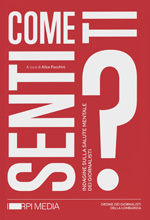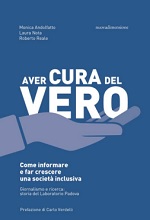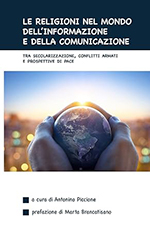Mosca, Congresso mondiale della Ifj dal 28 maggio al 2 giugno
Pubblichiamo alcuni dei documenti pervenuti da Mosca
30 May 2007 RAPPORTO SULLA GRAVE SITUAZIONE IN MEDIO ORIENTE, IRAQ E IRAN IFJ Report Highlights Middle East Press Freedom Crisis The International Federation of Journalists’ World Congress in Moscow has launched a detailed report on the problems facing media and journalists in the Middle East with a call for an end to targeting of journalists and reform of legal regimes that are a barrier to press freedom in the region. Threats of violence, continuing regional conflict and outdated laws have created a dangerous environment for all journalists in the Arab World and Iran, says the IFJ. “It’s time to break the cycle of violence and routine intimidation that makes peaceful and democratic reform almost impossible in the region,” said Aidan White, IFJ General Secretary, in Moscow where journalists’ leaders from more than 100 countries have gathered for this week’s Congress. The IFJ says the Middle East has in recent years become the most dangerous and threatening region in the world for journalism: • More journalists have been killed in Iraq than in any other conflict in recent history • Journalists and media in Palestine face the constant threat of kidnapping and violence • Reporters, writers and cartoonists have been jailed for their work • In almost all countries laws still criminalise the work of journalists The IFJ’s detailed report – Breaking the Chains – which was presented to delegates on May 30th, reveals, country by country, the scale of problems facing journalists and exposes how entrenched are the legal obstacles to free journalism in the region. In many countries, internal political battles are used as smokescreens by governments’ crackdown on media. The IFJ is calling for general decriminalisation of press offences, is demanding that kidnappings and acts of violence against media are ended, and is calling on all governments to eliminate imprisonment as possible sanction against journalists. “Journalists in the region are saying enough is enough,” said Aidan White. “There must be an end to the culture of intimidation which has stunted the growth of democracy and press freedom. Without urgent reform and the creation of open societies millions of people from the Maghreb to the Persian Gulf will continue to be denied a peaceful and prosperous future.” You can read the report in English or in Arabic. LA IFJ CONDANNA I DURI ATTACCHI AI GIORNALISTI IMPEGNATI NEL SINDACATO IN SERBIA 30 May 2007 IFJ Condemns Sacking of Journalists Defending Union Rights in Serbia Today the International Federation of Journalists, meeting at its Congress in Moscow, strongly condemned the harassment of journalists defending trade union rights in Serbian paper Narodne Novine, accusing the management of “cynical union busting”. On 28 May, 5 journalists of Serbian newspaper Narodne Novine were fired, and more of them face threats of being laid off. This follows what journalists say has been harassment of journalists trying to defend trade union rights and to improve working conditions. “Firing journalists because they want to defend union rights is simply illegal by all national and international rules”, said IFJ General Secretary Aidan White. “It amounts to a cynical attempt at union busting and the IFJ Congress in Moscow expresses its solidarity with Serbian colleagues”. Two journalists were demoted last month in the same newspaper for the same reasons and the IFJ has already sent a protest letter to the management. The anti-union campaign at Narodne Novine has seen membership of the local chapel of the Journalists Union of Serbia cut from 39 to 3. “The survival of a union defending journalists’ rights is now at stake”, said White. See also www.ifj.org/Congressa>. LE GIORNALISTE AL CONGRESSO MONDIALE IFJ CHIEDONO UGUAGLIANZA DI DIRITTI TRA I SESSI 29 May 2007 Women in Media Focus as Journalists at IFJ World Congress Demand Gender Equality Delegates and participants at the International Federation of Journalists (IFJ) World Congress in Moscow put the rights of women in media at the top of the agenda in an effort to press demands for an end to media stereotyping and discrimination. A special session at the Congress on Wednesday will discuss efforts to overcome gender stereotyping in countries in transition. There will also be the launch of a new publication and a special exhibition – Stop Sexism in the Media! – as well as discussions of programmes to highlight gender rights in Russia and other regions of the world. “The message at the IFJ World Congress is that media organisations and unions of journalists must work harder to eliminate the scourge of discrimination across the industry,” said Aidan White, IFJ General Secretary. “Women are still denied access to top jobs, they have inferior working conditions and they still witnesses to outdated and oppressive images of the role of women in society.” The Russian Union of Journalists, working with the IFJ’s International Gender Council, is putting a special focus on efforts to bring about change in the countries of the former Soviet Union and will be launching a new programme based upon an IFJ project that promoted links between women journalist activists in Europe and India over the past three years. “This is an issue that affects women working in journalism in every corner of the world,” said Nadia Azhgikhina, a member of the IFJ Gender Council and organiser of the events in Moscow. “Our aim will be to agree practical actions to improve the conditions of women in journalism and to encourage an editorial culture of mutual respect in which all journalists – men and women working together – will fight for gender rights.”




























